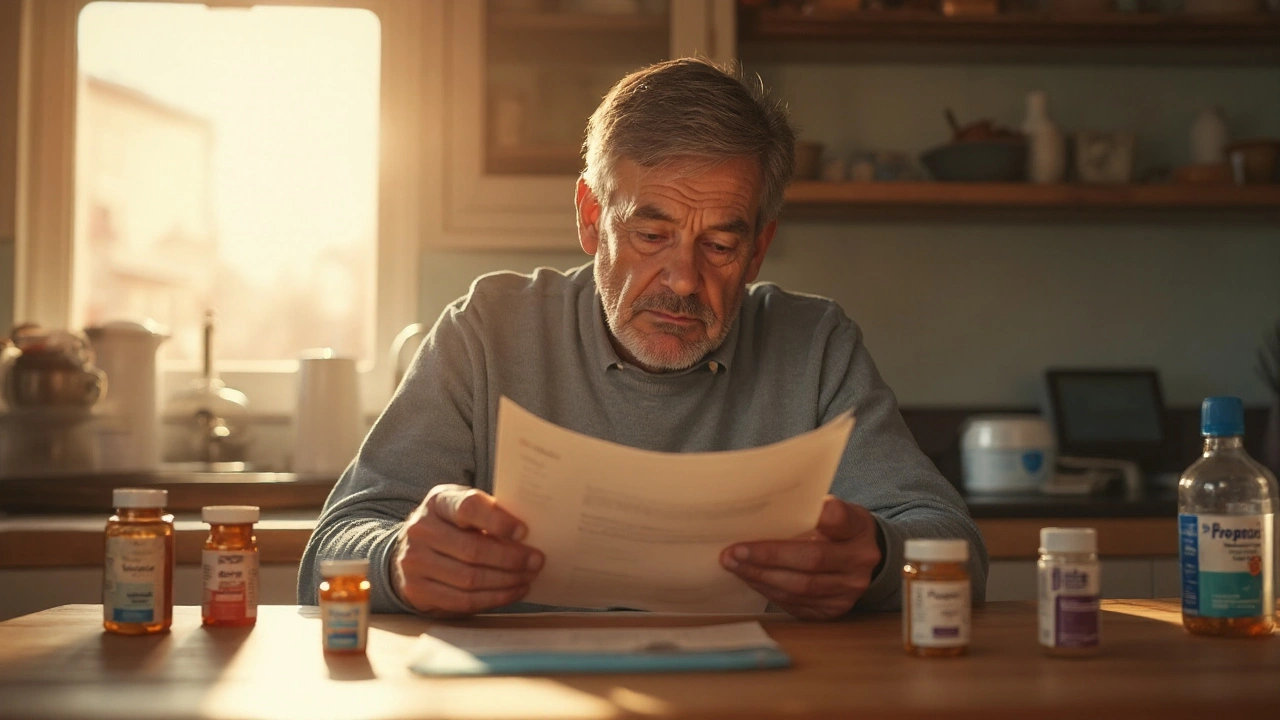High Blood Pressure: What It Is and How to Keep It Under Control
High blood pressure, or hypertension, means the force of blood against your artery walls is too high. Most people don’t feel any symptoms, but the pressure can damage the heart, kidneys and brain over time. Knowing the numbers matters – a reading over 130/80 mmHg is usually a sign to act.
Why does it happen? Genetics plays a part, but everyday habits matter too. Too much salt, sugary drinks, lack of exercise, being overweight and stress all push the pressure up. Smoking and too much alcohol add extra strain. Even sleep problems can sneakily raise your numbers.
How to Manage High Blood Pressure
First, check your blood pressure at home or at a pharmacy. Track the readings for a week and share the trend with a doctor. Simple lifestyle tweaks can move the needle fast. Cut back on salty foods – think chips, canned soups, fast food – and aim for fresh veggies, fruits and whole grains.
Move your body. Even a 30‑minute walk most days can lower pressure by a few points. If you’re couch‑bound, start with short walks and build up. Losing just 5‑10 % of body weight can make a big difference, especially if you carry extra pounds around the belly.
Limit alcohol to no more than two drinks a day for men and one for women. If you smoke, quit – your heart will thank you within weeks. Stress isn’t gone, but you can manage it with breathing exercises, yoga, or hobby time. Good sleep – 7‑9 hours – also helps keep numbers steady.
Medications You Might See
When lifestyle changes aren’t enough, doctors prescribe medicines. Common options include ACE inhibitors like Benazepril, angiotensin‑II blockers such as Avapro, and beta‑blockers like Betapace. Each works a little differently: ACE inhibitors relax blood vessels, while beta‑blockers slow the heart’s beat.
Some patients take calcium‑channel blockers or diuretics to help the kidneys get rid of excess fluid. Your doctor will pick a drug based on your age, other health issues and how your body reacts. It’s normal to try a couple of medicines before finding the best fit.
If you’re buying a prescription online, make sure the pharmacy is legit, requires a prescription and follows safety rules. Look for reviews, check the pharmacy’s license and never skip the doctor’s advice.
Finally, keep an eye on side effects. Dizziness, cough or swelling can happen with some drugs. Report any new symptoms to your doctor right away – they can adjust the dose or switch medicines.
High blood pressure doesn’t have to be a mystery. Check your numbers, eat smart, move often, and talk to your doctor about the right medication. With a few daily habits, you can protect your heart and feel better for years to come.

- 13 Comments
Unpack what Procardia (nifedipine) actually does for blood pressure and angina, learn about its side effects, real-world tips for users, and what research says about its safety.